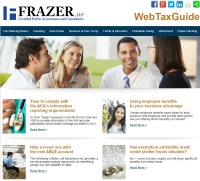Hi There,
Starting a new business is an exciting time. But before you even open the doors, you generally have to spend a lot of money. You may have to train workers and pay for rent, utilities, marketing and more.
Entrepreneurs are often unaware that many expenses incurred by start-ups can’t be deducted right away.
How expenses are handled on your tax return
When planning a new enterprise, remember these key points:
- Start-up costs include those incurred or paid while creating an active trade or business — or investigating the creation or acquisition of one. Organizational costs include the costs of creating a corporation or partnership.
- Under the federal tax code, taxpayers can elect to deduct up to $5,000 of business start-up and $5,000 of organizational costs. The $5,000 deduction is reduced dollar-for-dollar by the amount by which your total start-up or organizational costs exceed $50,000. Any remaining costs must be amortized over 180 months on a straight-line basis.
- No deductions or amortization write-offs are allowed until the year when “active conduct” of your new business commences. That usually means the year when the enterprise has all the pieces in place to begin earning revenue. To determine if a taxpayer meets this test, the IRS and courts will generally ask: Did the taxpayer undertake the activity intending to earn a profit? Was the taxpayer regularly and actively involved? Has the activity actually begun?
An important decision
Time may be of the essence if you have start-up expenses that you’d like to deduct this year. You need to decide whether to take the elections described above. Recordkeeping is important. Contact us in Brea, 714.990.1040 or Visalia, 559.732.4135 (or click the button below) about your business start-up plans. We can help with the tax and other aspects of your new venture.




